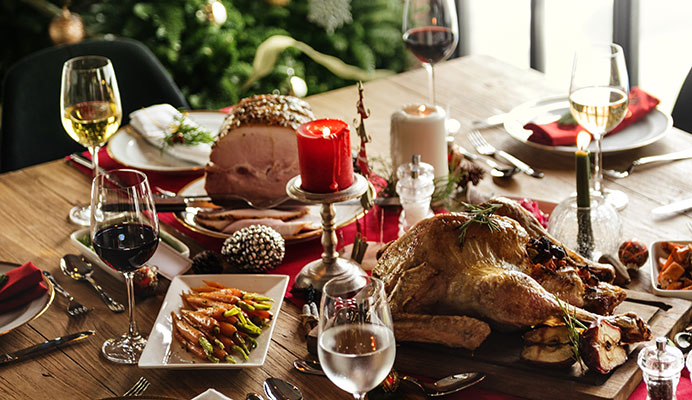Six ways Climate Change affected Christmas Dinner this year

21 Dec 2018
Farmers battled hard to bring Christmas dinner to our tables this year, due to the heatwave’s effect on crops and livestock, according to experts at the Royal Agricultural University.
The baking summer caused problems for staple foods and festive favourites alike - and climate change predictions suggest Christmas Dinner as we know it will be even tougher to put together in future.
Dr Nicola Cannon, Principal Lecturer in Agronomy at the Royal Agricultural University (RAU) said: “If you sit down to a Christmas lunch please think about the complex issues farmers deal with to bring this special meal to your table.
“The Intergovernmental Panel on Climate Change (IPCC) now predict 1.5° temperature rises above pre-industrial levels by 2050. So the challenges of food production in 2018 are almost certainly going to be experienced more frequently.”
How the extreme weather of 2018 affected Christmas Dinner, according to the RAU:
Potatoes: Potatoes were planted late this year and farmers without irrigation saw reduced growth due to moisture-stressed plants, resulting in lower yields and quality.
Carrots: Carrots grow best at temperatures of 15-18°C but they struggle in temperatures above 25°C, wilt and stop growing. The cold start to the year and then the prolonged heatwave probably lead to a cut in yields of 30 per cent.
Brussels Sprouts: The exceptionally hot May lead to dry seedbeds and undeveloped root systems, stressing the young plants and causing many to die off.
Stuffing: Most stuffings are made of a breadcrumb base. The price of a loaf of bread has risen since harvest, jumping from 97p for a 800g loaf to £1.05. This was fuelled by wheat yields being hit by the dry weather and by global supply issues.
Brandy butter, custard and ice cream: These dairy-based accompaniments to Christmas pudding can’t be produced without milk. Dairy farmers are facing severe forage shortages after a poor grass growing season, leaving low silage stocks and fodder prices at a record high.
Turkey and pigs in blankets: Turkeys are content with temperatures up to 26°C but when it gets hotter they can lose their appetites. Extra ventilation in their housing helps, as does being free range. Pigs also needed extra help with cooling down this summer.
But don’t worry about Christmas pudding: Many of the ingredients - mixed dried fruit, nuts and rum - are imported so it looks as if this festive favourite has escaped the extreme UK weather.